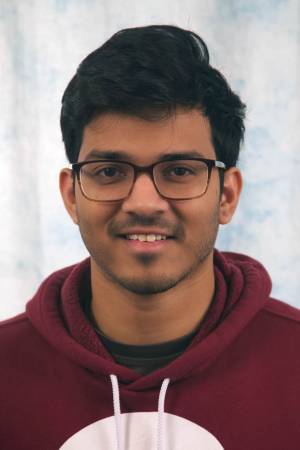
MSR Thesis Talk: Nishant Mohanty
Title: Multi-Robot Control using Control Barrier Functions: Theory and Application
Abstract:
Control Barrier Functions (CBFs) have emerged as a powerful theoretical tool for designing controllers with provable safety guarantees. This work presents a novel methodology that leverages CBFs to synthesize controllers for multi-robot coordination. Two multi-agent use cases are explored, i.e., a) Non-Cooperative Herding and b) Heterogeneous Swarm control. In the Non-Cooperative Herding scenario, our objective is to devise a control strategy for defending agents to prevent a flock of non-cooperative agents from breaching a protected zone by exploiting the interaction dynamics among them. Additionally, the Heterogeneous Swarm control scenario involves a group of agents, some equipped with obstacle-detection sensors and others without such capabilities. The goal is to enable the agents with sensors to integrate and interact within the swarm, guiding the group cohesively toward a common goal position while avoiding obstacles.
Furthermore, we address a crucial limitation of existing CBF-based controllers that usually fail to respect the control input’s limits, resulting in undesirable outcomes. Imposing these limits by capping the control input could compromise the safety guarantees offered by CBFs, and incorporating them as constraints in the optimization process often leads to infeasibility. To overcome these challenges, we propose a two-step cascaded optimization method. We parameterize the CBF and then compute their values that ensure that CBFs yield solutions, if they exist, within the control limits without compromising safety or feasibility. The performance and efficacy of our cascaded control approach are thoroughly evaluated through extensive simulations in the aforementioned multi-robot scenarios. We also experimentally demonstrate all the above algorithms using Khepera IV robots in a laboratory environment.
Committee:
Katia Sycara (advisor)
Maxim Likhachev
Swaminathan Gurumurthy
Zoom Link: https://cmu.zoom.us/j/5747973802
Meeting ID: 574 797 3802
Passcode: N/A
